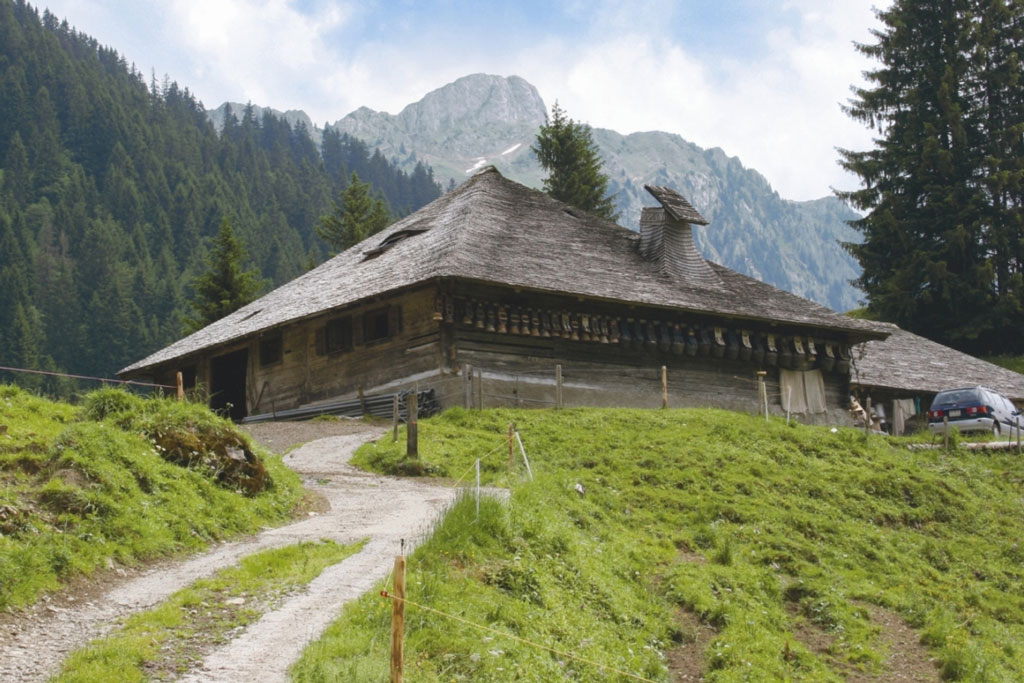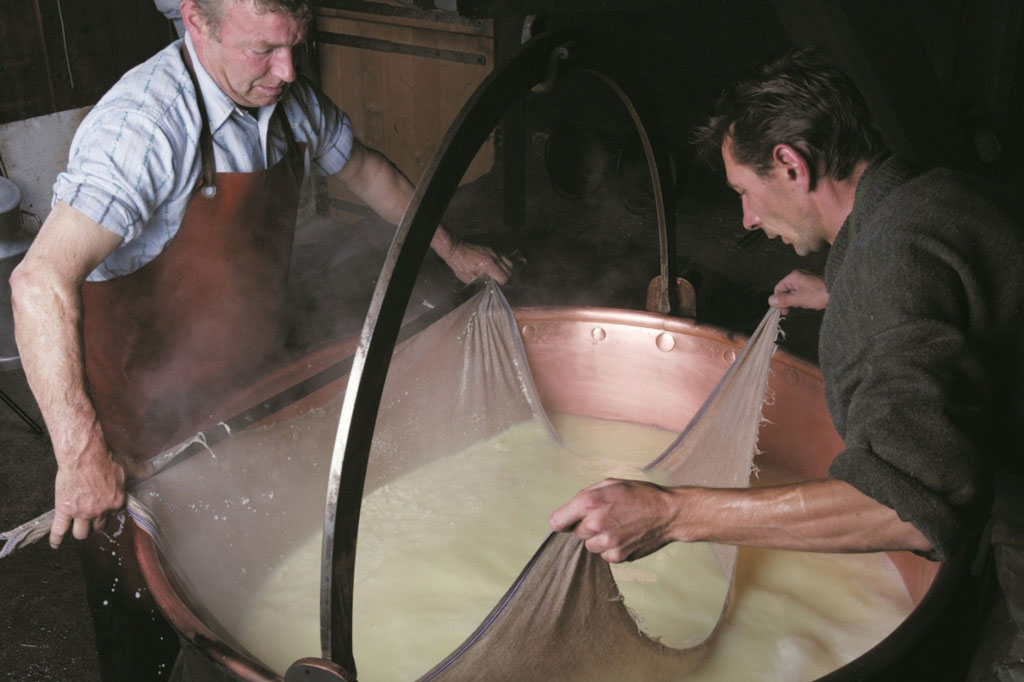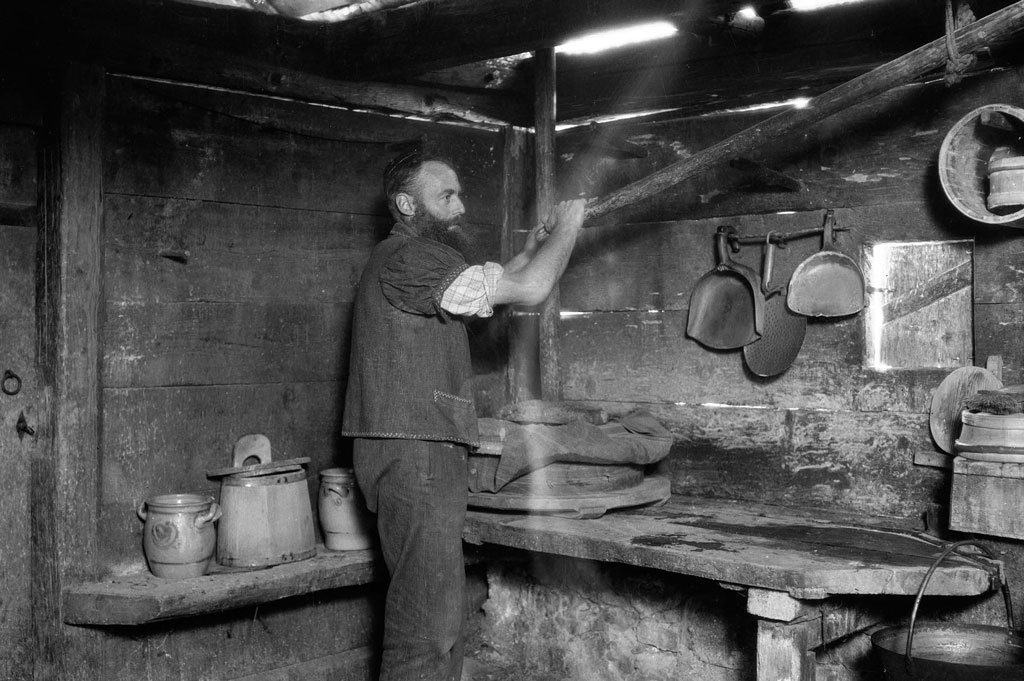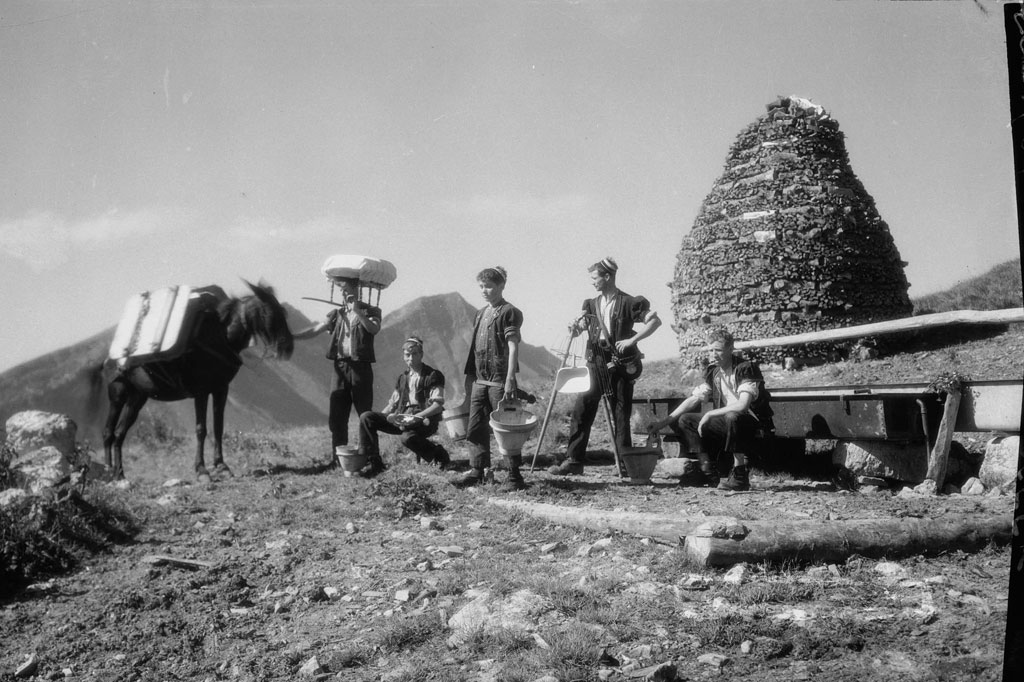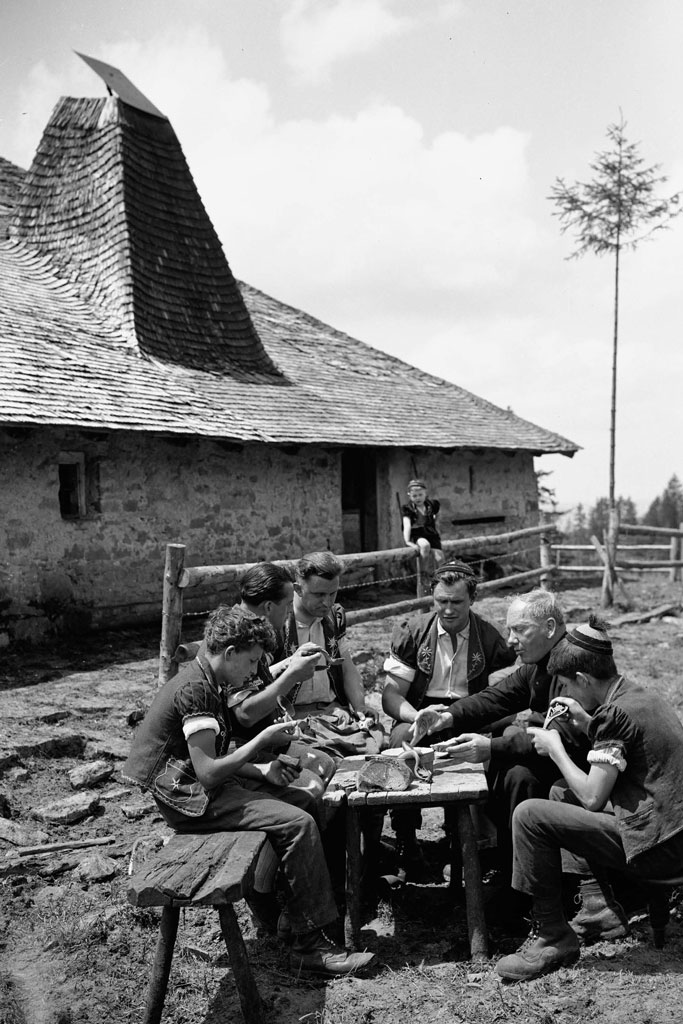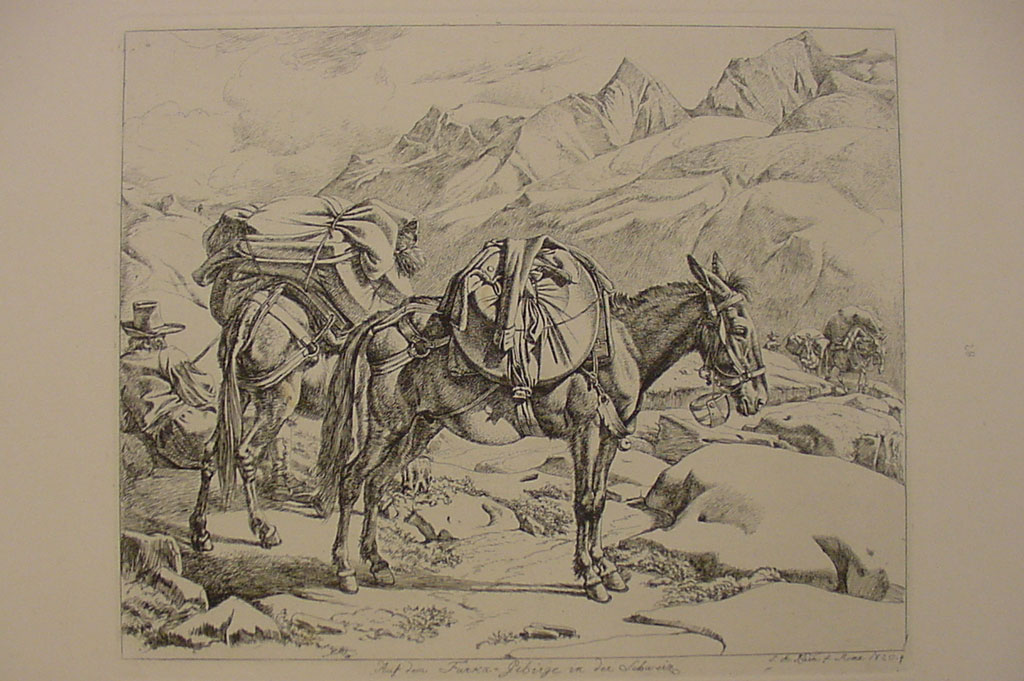*Inscribed on the Representative List of the Intangible Cultural Heritage of the UNESCO
With its many variations and local specificities, the alpine pasture season has its roots in a practice that has been widely documented since the late Middle Ages. Between May and October, cattle, sheep and goats are driven to high altitude pastures (between 600 m and 2900 m) to take advantage of the extra forage. There, men and women, the alpacists, manage herds and care for the animals, work on the maintenance of the pastures, fences and buildings, process the milk into cheese and other products and also welcome visitors. The practice creates economic and emotional links between the local population, the alpacists and the alpine pastures and thus contributes to the maintenance of centuries-old cultural landscapes.
The alpine pasture season has given rise to the knowledge and skills needed to maintain the sites and utensils, as well as to a variety of social practices. These include rituals, costumes, local calendar celebrations such as the inalpe (alpine cattle ascent), désalpe (alpine cattle descent) and, depending on the region, midsummer, or events where the most beautiful cow in the herd is chosen. These customs are passed on within the families and through practice. While the presence of the animals in the mountains plays an important role for visitors, festivals highlighting craft practices are important moments in local life. For two and a half centuries, artists have been celebrating the alpine pasture and the chalet as emblems of a life close to nature in literature, visual arts, music and on stage. The use of the alpine pastures with livestock thus maintains a set of traditions in a living social reality, in cultural landscapes that have been worked on for a long time, in connection with renowned and recognized food production.
Detailed description
Alpine pasture season (PDF, 332 kB, 27.06.2024)detailed description
Category
Oral expressions
Social practices
Traditional craftsmanship
Canton
Connected traditions
Links
Online Multimedia
Publications
Bibliography
Alpages, in : Dictionnaire Historique de la Suisse DHS
Thomas Antonietti : Klein Volk von Hirten: Alpwirtschaft im Wallis. Baden, 2006
Stefan Lauber : Avenir de l’économie alpestre suisse : faits, analyses et pistes de réflexion du programme de recherche AlpFUTUR. Birmensdorf, 2014
Alfred Roth: Der Sbrinz und die verwandten Bergkäse. Burgdorf, 1993
Mélanie Rouiller, Marie Rime : Le chalet d’alpage comme choix de vie. Charmey, 2015
Roland Ruffieux, Walter Bodmer : Histoire du gruyère en Gruyère du XVIe au XXe siècle. Fribourg, 1972
Filmography
Sarah Fasolin Häfliger : Die Käsemacher. Ausländische Alpsennen im Berner Oberland. 2010
Contact
Schweizerischer Alpwirtschaftlicher Verband
Roth-Stiftung Burgdorf
Interprofession du Gruyère
Musée gruérien


